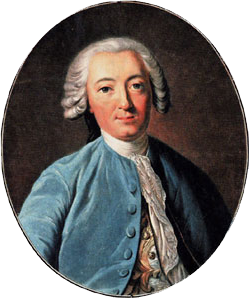A Quote by Jonathan Edwards
Since holiness is the main thing that excites, draws, and governs all gracious affections, it is no wonder that all such affections tend to holiness. That which men love, they desire to have and to be united to, and possessed of. That beauty which men delight in, they desire to be adorned with. Those acts which men delight in, they necessarily incline to do.
Related Quotes
It is not merely our own desire but the desire of Christ in His Spirit that drives us to grow in love. Those who seldom or never feel in their hearts the desire for the love of God and other men, and who do not thirst for the pure waters of desire which are poured out in us by the strong, living God, are usually those who have drunk from other rivers or have dug for themselves broken cisterns.
One should hallow all that one does in one's natural life. One eats in holiness, tastes the taste of food in holiness, and the table becomes an altar. One works in holiness, and raises up the sparks which hide themselves in all tools. One walks in holiness across the fields, and the soft songs of all herbs, which they voice to God, enter into the song of our soul.
Holiness is the strength of the soul. It comes by faith and through obedience to God's laws and ordinances. God then purifies the heart by faith, and the heart becomes purged from that which is profane and unworthy. When holiness is achieved by conforming to God's will, one knows intuitively that which is wrong and that which is right before the Lord. Holiness speaks when there is silence, encouraging that which is good or reproving that which is wrong.
Such is man's nature, that he is very inactive and lazy unless he is influenced by some affection, either love or hatred, desire, hope, fear, or some other. These affections we see to be the springs that set men agoing, in all the affairs of life, and engage them in all their pursuits: these are the things that put men forward, and carry them along.
It is part of the moral tragedy with which we are dealing that words like 'democracy,' 'freedom,' 'rights,' 'justice,' which have so often inspired heroism and have led men to give their lives for things which make life worthwhile, can also become a trap, the means of destroying the very things men desire to uphold.
Fruits are always of the same nature with the seeds and roots from which they come, and trees are known by the fruits they bear: as a man begets a man, and a beast a beast, that society of men which constitutes a government upon the foundation of justice, virtue, and the common good, will always have men to promote those ends; and that which intends the advancement of one man's desire and vanity, will abound in those that will foment them.


































